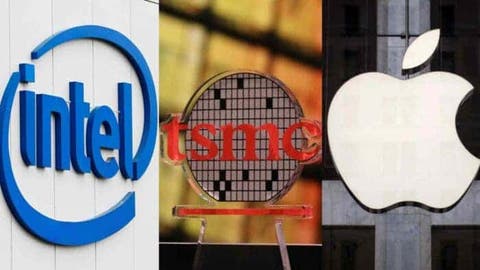TSMC is developing a 3nm manufacturing process. And today, Nikkei reported that both Apple and Intel will become the first adopters of this technology. This clearly shows how important TSMC is for the US companies. Though the US government is doing its best to bring more semiconductor production to America, it is still far from this goal. The first commercial products based on a 3nm TSMC process ought to come in the second half of next year.
For those who are not aware, nm (nanometer) refers to the width between transistors on a chip. It’s logical that the smaller number of this process means the chip is more advanced. But we should also mention that smaller the number, the more challenging and expensive they are to build. At the moment, the most advanced chips are using TSMC’s 5-nm technology. Say, all iPhone 12 processors use it.
Compared with the current 5nm-based chips, 3nm-based chips should provide 10%-15% better performance and 25%-30% better power consumption.
Though it’s too early to talk about the first products with a 3nm process chip, the Apple iPad will likely debut it. In this regard, the next-year iPhones will come with chips based on a 4nm process.
We mentioned that Apple and Intel are closely working with TSMC to bring the first 3nm chips. But if Apple is going to launch the first mobile devices with it, Intel will design chips for laptops and data center servers. Intel, which is the biggest American chip maker, has lost its leading position in the market.
Interestingly, AMD, which is Intel’s rival, will adopt TSMC’s 5-nanometer chip production technology for its notebook processors next year. But if AMD isn’t dangerous for Intel, Nvidia has clearedly announced that it will move into the server chip market to grab market share from Intel. However, its first server CPU chip will use TSMC’s 5-nm tech. it is scheduled to hit the market by early 2023.
Lastly, we should understand that the race for the latest chip production nanotechnology is not only a commercial pursuit. We mean geopolitics also matters. That’s why the US government has passed a $52 billion package to invest in the semiconductor industry. It wants to restore the country’s chip manufacturing leadership.
By the way, Intel has already confirmed it is working with TSMC for its 2023 product lineup. But as it didn’t say which production technology they are using, it’s not correct to say this is an official confirmation.
Follow Gizchina.com on Google News for news and updates in the technology sector.
